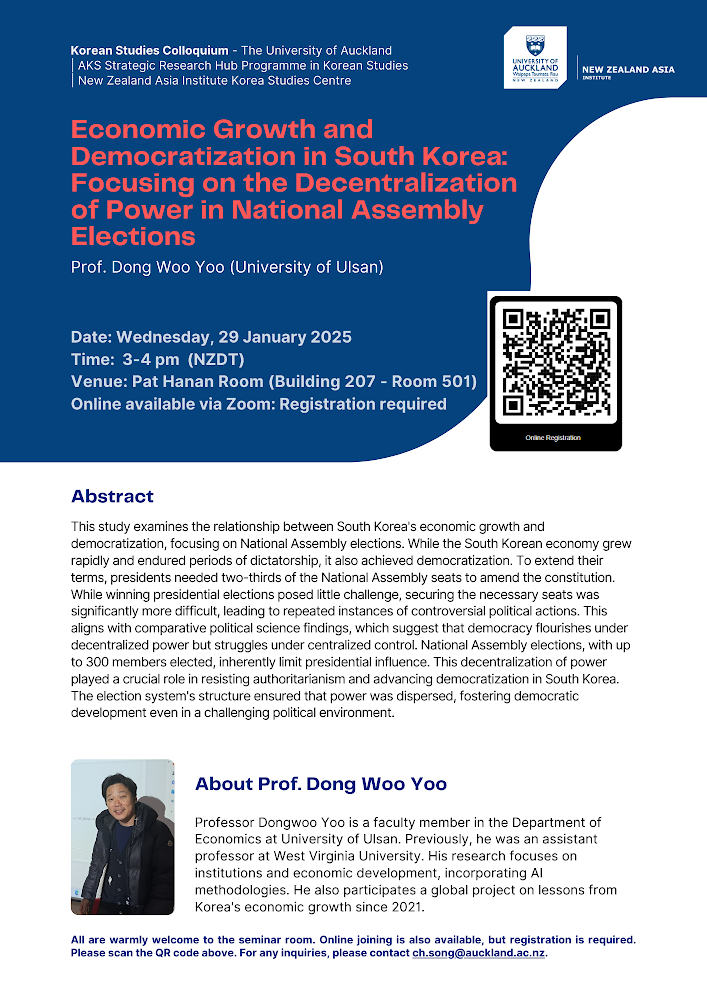time zone will be applied.
Report this post?

Korean Studies Colloquium at the University of Auckland, featuring Prof. Dong Woo Yoo from the University of Ulsan. The talk, titled “Economic Growth and Democratization in South Korea: Focusing on the Decentralization of Power in National Assembly Elections,” explores the relationship between South Korea’s rapid economic growth and democratization, emphasizing the decentralization of power in its political system.
Event Details
• Date & Time: Wednesday, 29 Jan 2025, 3 PM–4 PM (NZDT)
• Location: Pat Hanan Room (Building 207 – Room 501), University of Auckland / Online via Zoom
• Online Participation: Available via Zoom with pre-registration required.
This session is part of the University of Auckland's AKS Strategic Research Hub programme in Korean Studies, supported generously by the Academy of Korean Studies (AKS).
About the talk
This study examines the relationship between South Korea's economic growth and democratization, focusing on National Assembly elections. While the South Korean economy grew rapidly and endured periods of dictatorship, it also achieved democratization. To extend their terms, presidents needed two-thirds of the National Assembly seats to amend the constitution. While winning presidential elections posed little challenge, securing the necessary seats was significantly more difficult, leading to repeated instances of controversial political actions. This aligns with comparative political science findings, which suggest that democracy flourishes under decentralized power but struggles under centralized control. National Assembly elections, with up to 300 members elected, inherently limit presidential influence. This decentralization of power played a crucial role in resisting authoritarianism and advancing democratization in South Korea. The election system's structure ensured that power was dispersed, fostering democratic development even in a challenging political environment.
Speaker Bio
Professor Dong-Woo Yoo is a faculty member in the Department of Economics at the University of Ulsan. Previously, he was an assistant professor at West Virginia University. His research focuses on institutions and economic development, incorporating AI methodologies. He also participates a global project on lessons from Korea's economic growth since 2021.